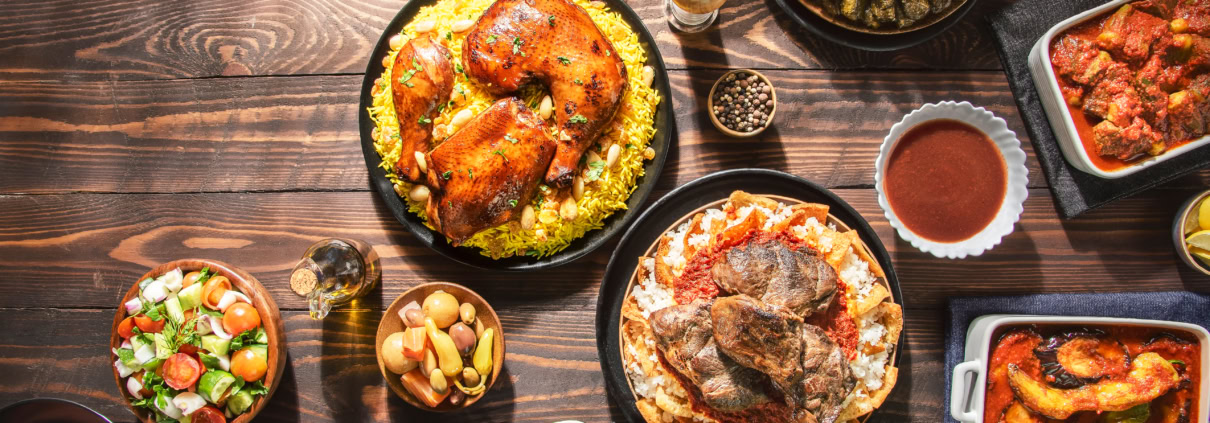What Is the Best Approach to Applying Scrupulousness in What One Eats When One Is Invited to Someone’s Home?
Answered by Shaykh Yusuf Weltch
Question
In situations like being a guest at someone’s home for dinner, where questioning about the meat’s permissibility might cause difficulty or strain the relationship, what is the best approach to take according to Islamic guidance?
Answer
In the Name of Allah, the Most Merciful and Compassionate
When invited to someone’s home to eat, the best way to be scrupulous is to preempt the situation by respectfully explaining to them your dietary preferences prior to their preparation of the food.
This may manifest differently when the host is a Muslim as opposed to a Non-Muslim host. For Muslims, terms like hand-slaughtered meat may be understood with little explanation. For the non-muslim, one may choose the easier route and request that no wine be used and that the dish contain no meat.
Unexpected Invitations: Muslim Home
If one is invited on the spot with little notice, one must assess the situation, especially the host.
If the host meets the following conditions, one is not to ask about the food:
1) The host is a person of uprightness (i.e., they are not publicly engaged in major sin) 2) Their wealth is from permissible sources (or at least, most of it is)
3) They understand the basic conditions of Halal meat (this is in case you do not know the source of their meat)
In such a case, doubting, let alone asking, is considered having ill opinions of a Muslim and is sinful. [Ghazali, Ihya ‘Ulum al-Din]
Unexpected Invitations: Non-Muslim Home
In such a situation, one must navigate what is served and choose only that which does not contain meat or wine. One can partake in seafood, fruits, vegetables, etc.
In this manner, one tactfully stays away from the prohibited without imposing one’s restrictions on the host and other guests. If asked, one can respectfully explain one’s beliefs whilst expressing gratitude for the non-meat options.
Advice
In situations of need, one may choose to take some of the less cautious sound opinions in their school of thought to not hurt their hosts’ feelings. For example, some Hanafis take a very strict opinion regarding the incidental presence of non-wine alcohol in some ingredients like vanilla extract and soy sauce. [Ibn ‘Abidin, Radd al-Muhtar]
This opinion is based on caution and is not the relied upon position in the Hanafi school. Thus, if a Muslim or non-Muslim makes a vanilla cake for you and they would be confused or offended by your not eating it, one may choose to act on the sound opinion that is less cautious. This is based on circumstantial discretion. [Ibid.]
Hope this helps
Allah knows best
[Shaykh] Yusuf Weltch
Checked and Approved by Shaykh Faraz Rabbani
Shaykh Yusuf Weltch teaches Arabic, Islamic law, and spirituality. After accepting Islam in 2008, he completed four years at the Darul Uloom Seminary in New York, where he studied Arabic and the traditional sciences. He then traveled to Tarim, Yemen, where he stayed for three years studying in Dar Al-Mustafa under some of the greatest scholars of our time, including Habib Umar Bin Hafiz, Habib Kadhim al-Saqqaf, and Shaykh Umar al-Khatib. In Tarim, Shaykh Yusuf completed the memorization of the Qur’an and studied beliefs, legal methodology, hadith methodology, Qur’anic exegesis, Islamic history, and several texts on spirituality. He joined the SeekersGuidance faculty in the summer of 2019.
